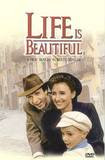Mockingjay (that I read a few months ago) was the final book in the Hunger Games series, a trilogy of novels aimed at teen readers that has found crossover success with adults. The Hunger Games novels explore a sci-fi future where a powerful central government (the Capitol) keeps each outlying “district” in line by hosting The Hunger Games, a yearly event where one adolescent boy and one adolescent girl from each district are chosen by lottery to fight to the death. The series’ protagonist, 16-year-old Katniss, volunteers for the games to take the place of her 12-year-old sister Prim.
The trilogy is full of action, and violence, but I was drawn in by the books’ vivid characters and powerful anti-war themes. The last book, Mockingjay, has elicited particularly divided opinions, especially regarding the level of violence depicted in a book intended for teens, and the trilogy’s ultimate resolution.
While ending a wildly popular series is no easy task, I’ve had a lot of different responses to different series I’ve read. Sometimes I feel like a series gets a pretty pink bow tied on it that leaves me thinking, “What do you mean, happily ever after? What about _____?” Sometimes I feel like an author goes for shock value, and leaves the reader feeling betrayed because they didn’t maintain the integrity of the world they created. In that context, Mockingjay’s ending satisfied me because when I got to the end, I felt like she had stayed true to the characters and true to the world she had created. In my mind, it fit.
Would I have loved Katniss to become superwoman and lead the revolution with blazes of glory? Of course. Who doesn’t love a kick-butt female protagonist? But she’s never been that kind of person. Katniss’s bravery had always been motivated by a desire to protect those she loves. So why wouldn’t she go catatonic when trying to do her part for the revolution ends with the deaths of hundreds of people from her home and Peeta getting tortured out of his mind? It stays true to form. And I would have loved for her to have some dramatic moment where she boldly chose to be with Peeta. But a major theme of the book is that living in a violent world makes it hard to develop the trust and hope needed to make love work. Given all she’s had to deal with, the fact she can let it gradually happen feels very hopeful and optimistic to me. It is a violent world, and the violence was less grating to me, actually, than the earlier books because it was adults, rather than teenagers committing it, and it was for revolution, rather than simply for the entertainment of the Capitol.
While I did feel like it missed the moments of beauty amid the ugliness that I loved so much about the first two, I felt satisfied when I got to the end because I did feel like she maintained the integrity of the world she created.
skip to main |
skip to sidebar












The rest is still unwritten
Hi there
I love...
- three little boys
- music
- bike riding
- cooking
- birthdays
- flip flops
- fall
- going dancing
- swimming
- oatmeal
- flowers
- reading
- organizing
- my mom & dad
- cookie dough
- surprises
- genuine people
Site Seeing
BB Remembers
-
▼
2010
(370)
-
▼
November
(31)
- Shark Attack
- Max the Quarterback
- Hunger Games: a book review
- Markus the Goalie?
- First Annual Park City Hockey Shoot-out
- Day 2
- Champions!
- Mom's Birthday
- Life is a journey...
- The Girl in a Whirl
- I AM THANKFUL:
- New Friends
- Rink Rats
- Autumn Leaves
- Overnighter
- Today's a New Day
- Loony
- Smooth(ie) Operator
- Scout
- Do you believe in magic?
- Snow
- Time has Flown
- Parenting: So Far
- To judge...
- Happy Thanksgiving
- And That Was Thanksgiving 2010
- Shoot-out
- Making Friends
- We are the Champions...
- Big, Fluffy, White Stuff
- Season's Greetings -YIKES!
-
▼
November
(31)

What I'm doing at the moment...
Watching:












